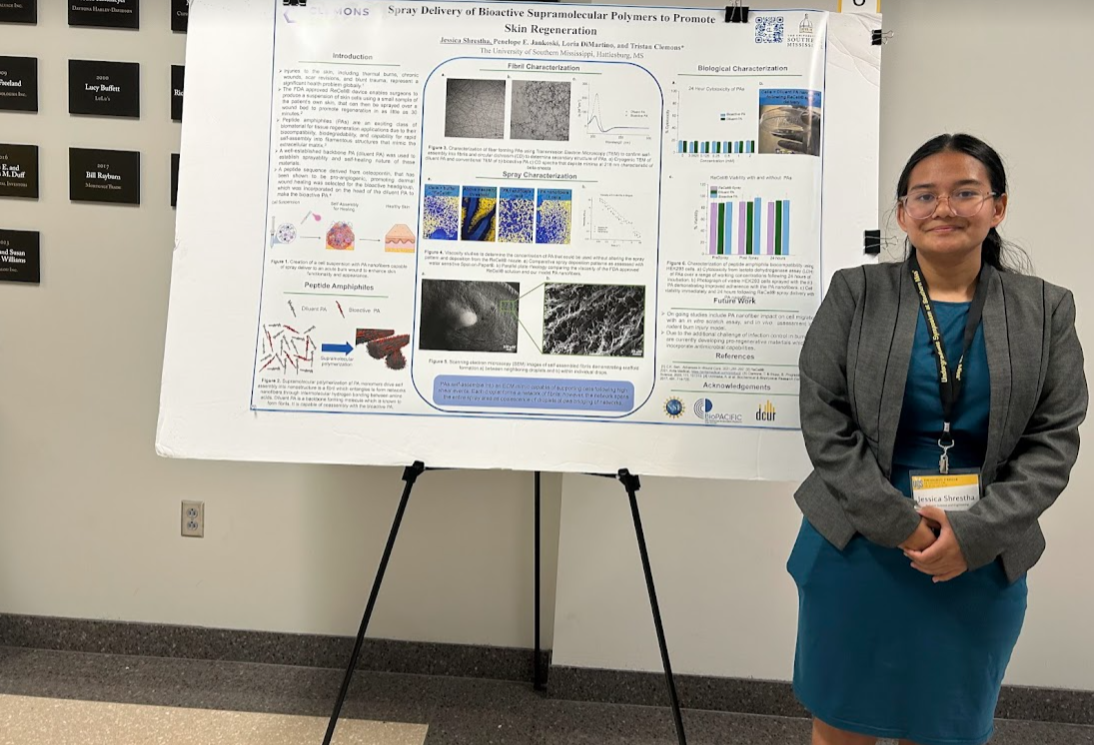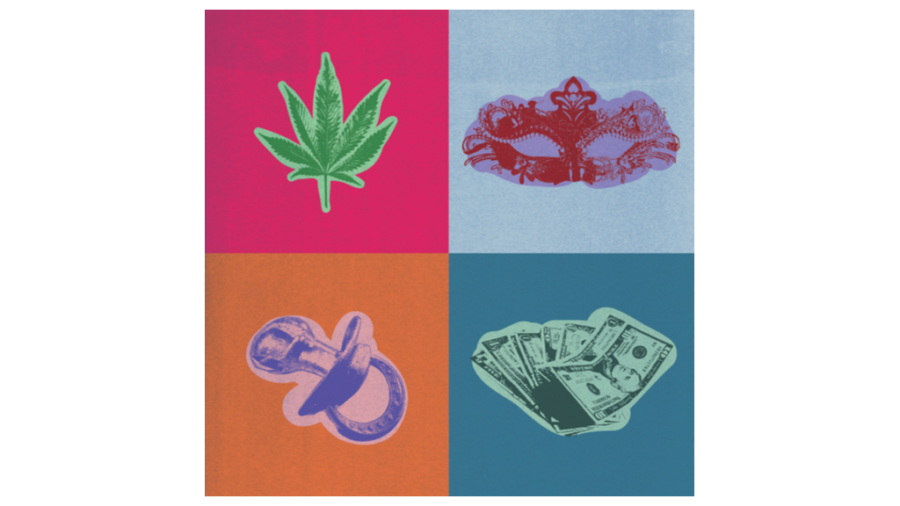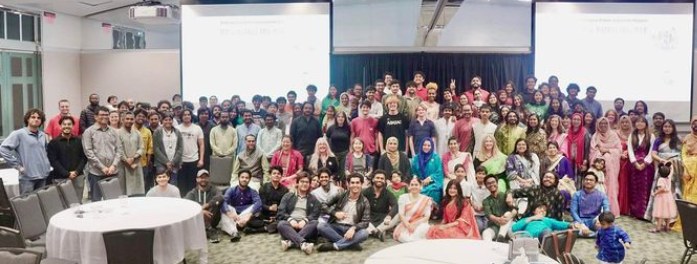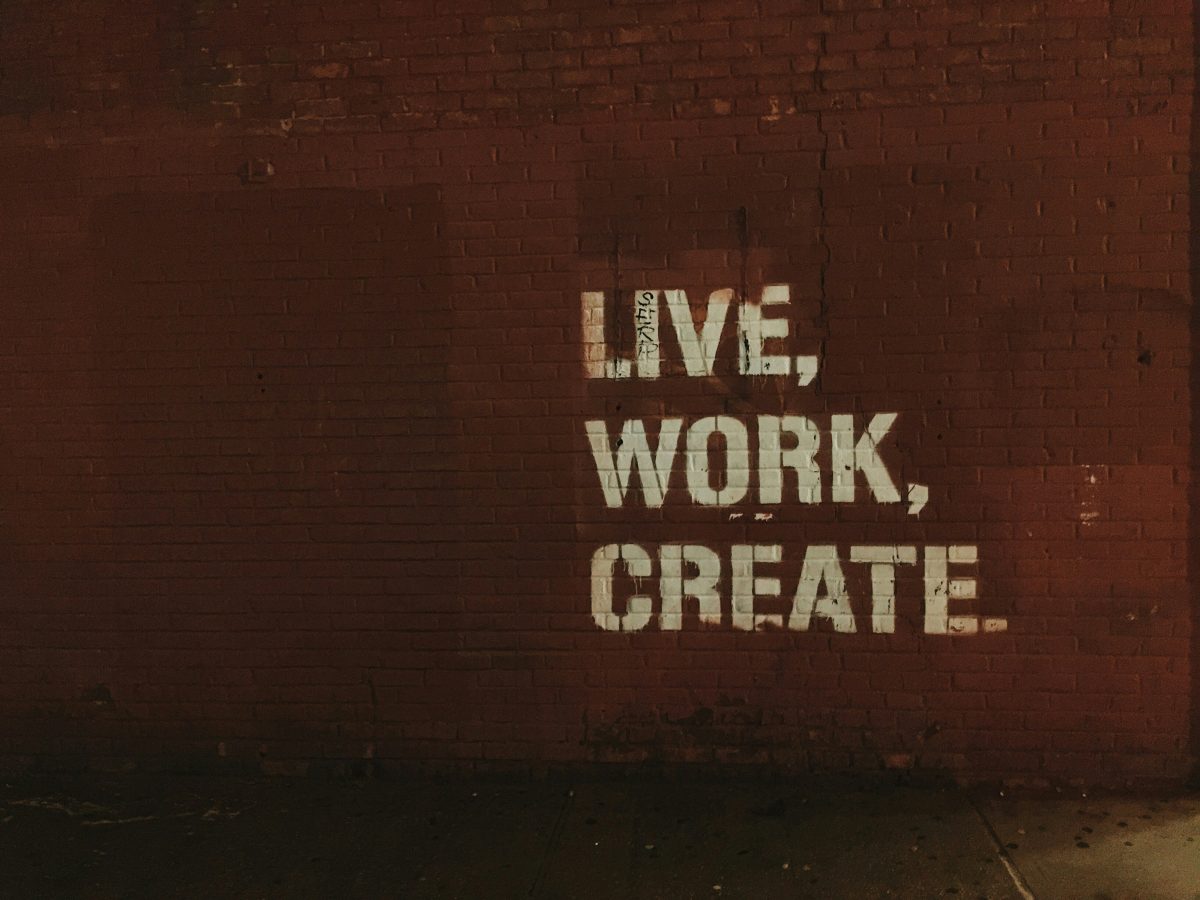“You could call me a therapist,” said USM student Kristen Burke.* “Call me a violent therapist.”
Under moonlight and a complete disguise that includes a racy outfit, mask and wig, Burke sheds her usually unimposing identity in order to become a dominatrix.
According to Merriam-Webster, a dominatrix is “a woman who physically or psychologically dominates her partner in a sadomasochistic encounter.”
Burke pays for college by “basically beating the hell out of grown men.” By charging $400 an hour — a steep price that an unexpectedly large number of local business and servicemen, professors and even pastors have been all too willing to pay— she has established a surprisingly lucrative career that has paid for nearly her entire education.
“As far as bills for school go, I think I have just $8,000 left to pay,” Burke said. “There’s something poetic about a young woman being able to get paid pretty decent sums of money to just beat the hell out of usually some asshole. More often than not [my clients] are usually crappy people. Not always— some people are genuine, high members of society.”
Even so, Burke said that she hates she ever had to resort to this practice to pay for school.
She is one of many students who regularly engage in unusual and often risky practices in order to pay their way through college.
Debra Michael,* another USM student, serves local men as a “sugar baby.” Though she doesn’t engage in any sexual activity, she knows that most people would probably assume that she does, so she doesn’t tell anyone. Even so, she finds it frustrating.
“Even if someone in my situation was sleeping with their suitors, I believe that’s their business,” Michael said. “Casual sex shouldn’t be as taboo as it is.”
Another student, Presley Newman,* attempted to sell marijuana in order to live comfortably. Newman admits that it was probably a bad idea, particularly because she wasn’t properly equipped.
“I didn’t have the material I needed,” Newman said. “I didn’t have a scale. I didn’t have a lockbox or an airtight container or anything like that. I didn’t even get my first pipe until after I’d been selling for two months.”
Newman said on top of her lack of preparedness, she was often afraid of getting arrested while transporting the drug because she almost always had about an ounce in her car.
“That’s also what made it fun,” she said. “The adrenaline rush, and that sounds stupid. College kids are stupid. We do a lot of dumb stuff to feel that excitement, that thrill.”
In addition to the thrill selling drugs gave her, Newman said that she pursued the practice because it made her feel as though she was able to take care of herself, and she enjoyed the resulting peace of mind.
Burke said that peace of mind can come at a high price.
“[Being a dominatrix] isn’t the weirdest way that people make money, and if this is how I’m able to pay for school on my own, I can only imagine how much more difficult other [students] struggle,” Burke, who remembers the feeling of being broke and in despair all too well, said.
Three years ago, she was working a minimum wage job and complaining to a friend. In addition to paying tuition, she was paying for an apartment and for a close relative to receive care at a nursing home.
“I told my friend, ‘I’m not making any money, I’m broke as hell, I hate this, I don’t know what to do and I can’t afford school,’” Burke said. “She said, ‘Let me introduce you to something, see if you’d like it. See if you’d be interested making money how I make money.”
Burke, who was also dealing with a painful medical diagnosis of her own, said she had no idea what her friend was talking about and assumed she was selling drugs. Though she had never sold drugs before, she was familiar with the practice and begrudgingly agreed out of desperation.
“I grew up in a really crazy environment,” she explained. “Both of my parents were drug dealers when I was younger.”
Though Burke has long since moved out of her childhood home, her mother regularly asks her for money.
Burke’s mother never questions where her daughter got it— and Burke never wants to have to tell her.
“Even though my parents were drug dealers and heroin abusers, I could never tell them [what I do],” she said. “God’s still everything [to them], you know? The minute I tell them, [they’d tell me] you’re going to hell. Fire and brimstone for sure.”
Burke puts care into her practice in order to ensure that she can give her clients exactly what they need.
She learned how to be a dominatrix by being a submissive first.
“I feel like you can’t try to control someone unless you know what it feels like to be controlled,” she said. “It’s not fair otherwise. You’re doing an injustice by not knowing what it feels like to be in their shoes. I was someone’s submissive for a year, but it wasn’t sexual for me.”
In fact, Burke maintains a strict, no sexual contact rule.
“Most people think it’s prostitution,” she said. “It’s not. I’m not. I’m very weird about interactions with clients. I never touch them with my bare hands or anything like that.”
Burke said that she likes what she does because it all boils down to healing.
“People are odd and people have problems, and people don’t know how to fix their problems,” she explained. “Most of the people I work with have some sort of trauma that they’re usually hung up on. I see them in their absolute weakest states, when they’re completely vulnerable and willing to drop all walls and barriers to just be able to have someone who can provide them with some sort of relief.”
While Burke’s mostly middle-aged clients may require the services of a dominatrix to find relief, Newman said some students seek relief from their problem by turning to drugs, and that drug dealing and usage is more common in her age group than most people realize.
“We have super high levels of anxiety, depression, even PTSD,” she explained. “When the generation before us doesn’t believe in mental health issues like that, then a lot of people our age have to self-treat and a lot of them do it with recreational drugs. It isn’t the best answer, but it’s one that’s readily available.”
Burke says that not everyone can talk to a therapist and that some people have serious mental issues that otherwise go untreated.
When her clients have particularly unusual and unsettling needs, she sometimes finds herself questioning her role.
“Like, some people like to get cut over and over again because they’re into murder fantasies, and sometimes, I’m like, ‘What am I doing? This is screwed up. How am I facilitating this?’” she said. “But then I realize if not for me, then that aggression and sexual frustration goes somewhere else. I’ve had clients get arrested. I have clients sitting in jail for [things] they’ve acted out on.”
Newman, who found that selling drugs wasn’t lucrative for her, quit not too soon after she started. Though she never faced consequences for what she did, she acknowledges that she would probably have gotten off easy because of who she is, and that bothers her.
“They probably would’ve been pretty lenient on [a middle class white girl],” she said. “I feel like certain people have access to means of privilege, even illegal privilege.”
That hypocrisy is a common theme all three girls have seen or experienced.
“I work very hard on my own,” Michael said. “I have two jobs and I maintain above a 3.0 GPA in school, but I think people would label me as a ho just because of what [they] think I might be doing for these men to spend money on me so easily. [It’s] the judgment that comes with the title ‘sugar baby.’”
Burke said the prevalence of hypocrisy is one of her biggest takeaways from three long years as a dominatrix.
“People are hypocrites,” she said. “People that you would think have the most control of their lives, who seem to have it all together— they don’t. [The] holiest of thou are sometimes the ones that, behind the curtains, are into the weirdest shit.”
Even though she has seen and experienced some horrifying things, Burke remains optimistic about people and hopes to someday work with underprivileged communities as a teacher.
“I don’t think I could ever be bitter about humanity, to be honest,” she admitted. “I’m too much of a hopeful person.”
*Names have been changed using a random name generator to protect identity




































